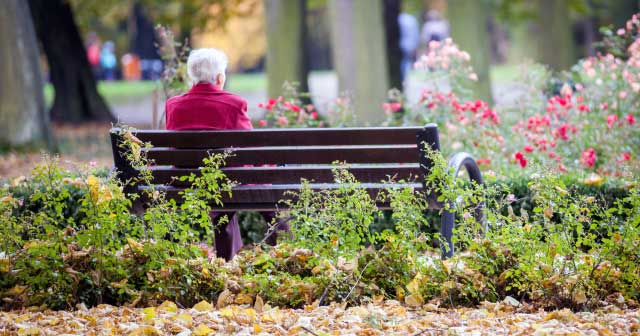The Insidious Problem of Ageism

Published on 28 October 2025 01:57 PM
This article is written by Christine Sanders who has written a book (unpublished) about ageism and her experiences. Christine writes here about some of those experiences and her views.
In my 50s I had little idea of what lay ahead, and how people’s behaviour towards me would change markedly as I moved into old age.
I lost my job in my mid-fifties because of health problems, and despite being well qualified and experienced was then unable to get another one.
Now in my 70s I brace myself before going out of the house because of the likelihood that I will be met with ageist behaviour of one kind or another.
The attitudes of GPs have changed. One refused to investigate my health problems saying they were due to ageing. I moved to another practice, and the health problem turned out to be an under-active thyroid which is easily treatable, but which untreated can lead to serious illness. But at the new practice, rather than respecting the NHS policy of Patient Choice and discussing and agreeing what to do with me, they have taken decisions and sought to enforce them.
This gives me the feeling that they are stereotyping me as incompetent because of my age. I also had difficulty getting them to refer me to a long covid clinic and had to put considerable pressure on them over more than a year before finally getting some much-needed help.
I am not sure if this behaviour is ageist, but it is likely to affect older people more because of our tendency to develop health problems in old age. Helping to keep us healthy would surely not just be so much better for us, but it would also reduce pressure on services.
It had become unutterably depressing. I found I was having difficulty hanging onto my sense of myself as a competent adult. I sat alone in my house looking out of the rain-streaked window and wondering what I could do to preserve my sense of who I know myself to be – an individual, not a stereotype, and an adult with abilities, not a pseudo-child. Eroding older people’s sense of ourselves as adults seems very dangerous to me as it is so likely to turn older people into being passive and dependent, to undermine our sense of well-being and health, and to exacerbate any mental illnesses and cognitive impairment.
One of the things I decided to do was to write a book about my experiences for me, for the many others in similar situations, and for other generations who need to understand this phase of life and accept that this will happen to them.
My book not only describes my experience of ageism but also takes a look at the very limited way in which older people are depicted in those things that reflect our society back at us i.e. television, newspapers, the Arts, books and fashion. The books buck the trend, and there are some very interesting books about old age and older people, but, with the odd exception, they seem to be aimed at a niche market and not given a high profile.
We need a much fuller representation in the media of who we, older people are, and what ageing is like, the issues that we face. It is vitally important that our voices and perspectives should be included in television and the media, as currently they are not.
We have formed our views from considerable life experiences. I also look at the development of the “Welfare State” and what has been happening to it, its importance in supporting equality for all groups, as well as the equality agenda and human rights, and improvements that are needed.
Writing it was cathartic, and I do feel much better. However, I now face the difficulty of trying to find a publisher to take it on, and publishing is clearly affected by the prevailing views of society, i.e. to avoid seeing much about old people, or their own futures.
Everyone grows old, but a lot of people do not seem to have taken that fact on board. Unless attitudes and behaviour towards older people change, younger people will go on to experience what we are now going through. So, I feel that it is imperative for all age groups to bring these issues out into the open.
With the negativity towards older people in mind, my book is called ‘Whatever You Do, Don’t Grow Old’.
This article is written by Christine Sanders
